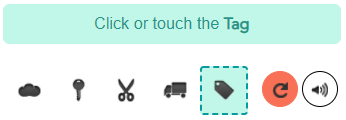Compare Fidelity Bonds Insurance Rates
Learn more about the factors that dictate your fidelity bonds insurance rates, compare top insurers, and save.
 Your information is secure.
Your information is secure. Fidelity Bonds
Type of bond that provides reimbursement if an employee of a business commits fraud, theft, or forgery against a client or your business.

What are fidelity bonds
Fidelity bonds provide reimbursement if one of your employees commits fraud, theft, or forgery against a client or your business. They are often required by client contracts.
When do businesses need fidelity bonds?
Any business with employees who handle sensitive financial or personal information could benefit from a fidelity bond. Fidelity insurance provides coverage when an employee:

- Embezzles company funds
- Forges a signature
- Commits fraud
- Steals from your company or a client

Fidelity bonds are not required by law. However, your clients might request fidelity bonds to protect their assets from your employees, especially if you work as an independent contractor in finance or banking.


You may want to purchase a fidelity bond if employees can access:
- Your company or client finances
- Social Security numbers
- Credit card numbers
- Electronic funds
- Other financial or personal information
First-party versus third-party fidelity bonds
First-party fidelity bonds protect your business
First-party fidelity bonds protect your own business against criminal acts by your employees, including embezzlement. The more access your employees have to your business’s finances, the greater the risk. A first-party fidelity bond can provide financial reimbursement after an employee steals from your company.
Third-party fidelity bonds protect your clients
A third-party fidelity bond could reimburse your clients in the event that an employee misuses Social Security numbers, credit card numbers, or other financial or personal data. It’s commonly required in client contracts with consultants or independent contractors, especially in finance and banking.
Fidelity bond costs
Fidelity bonds are often needed to fulfill client contracts. Factors that affect the cost of a fidelity bond include:
- Amount of coverage, or policy limit
- Deductible
- Personal and financial information handled by your company
- Number of employees with access to sensitive information
What do fidelity bonds cover ?
Fidelity bonds cover theft, forgery, fraud, and other criminal acts by employees that affect your business or your clients.


















